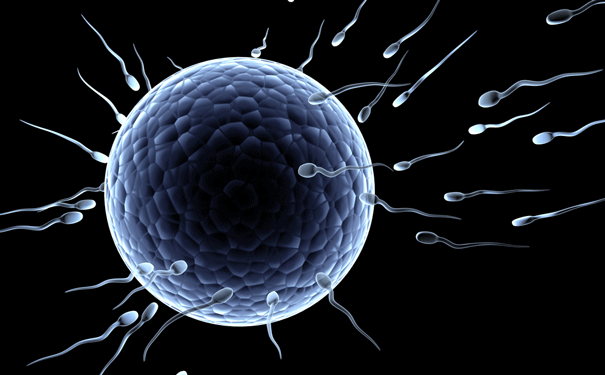
Not all sperm are able to successfully fertilise an egg. Image: Lukiyanova Natalia / frenta/Shutterstock
One protein is critical for the beginning of life.
As we learned in our high school biology classes, pregnancy occurs when an egg and a sperm fuse, either in the womb or in vitro. But sometimes a sperm will fuse with an egg and nothing happens. The sperm in question may lack a vital protein known as PLC-zeta (PLCz). According to scientists from the University of Cardiff, the protein initiates the egg activation process and sets off all the processes necessary for the development of any embryo.
“We know that some men are infertile because their sperm fail to activate eggs. Even though their sperm fuses with the egg, nothing happens,” says professor Tony Lai, lead author of the study published recently in Fertility and Sterility. “These sperm may lack a proper functioning version of PLCz, which is essential to trigger the next stage in becoming pregnant.”
By studying the sperm of infertile male patients, the researchers found that PLCz was defective in some of the sperm. They then discovered that by adding the missing protein to the infertile sperm, they could can kick-start its ability to fertilise an egg. Using results from previous research conducted with mice as a starting point, Lai and his team were able to prepare PLCz from human sperm.
When an unfertilised egg was treated with the protein, it resulted in successful embryo development to the blastocyst stage, which is vital to pregnancy success. “If this protein is inactive or missing from sperm, it fails to trigger the process necessary for egg activation — the next crucial stage of embryo development,” Lai says “However, when an unfertilised egg is injected with human PLCz, it responds exactly as it should do at fertilisation.”
According to Lai, one in every six couples who are trying to get pregnant will experience fertility problems — in Australia, 3.3 per cent of babies now born are a result of assisted reproductive technologies. These findings could eventually help couples who can’t conceive.
While this was a laboratory experiment and the methods couldn’t be replicated in a fertility clinic, Lai says that they have the potential to be translated into humans. “In the future, we could produce the human PLCz protein and use it to stimulate egg activation in a completely natural way,” he says. “For those couples going through IVF treatment, it could ultimately improve their chances of having a baby and treat male infertility.”
Source: Cardiff University






